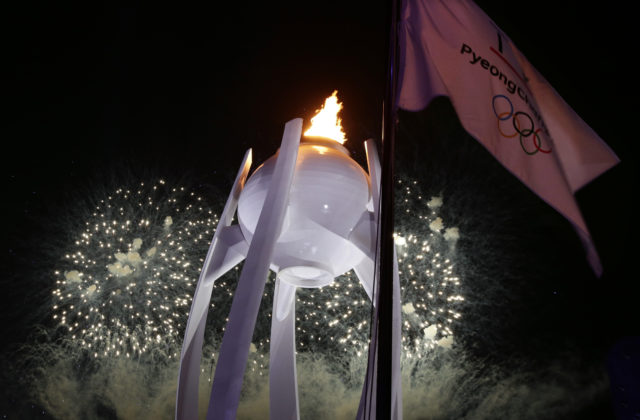By Corrie Coleman | Reporter
Houston sophomore Timothy Tateossian has been in South Korea for 20 days and has already watched an Olympic medal ceremony, seen a holographic PSY concert, celebrated the Lunar New Year with a Korean family and played coin karaoke. Tateossian is studying abroad in Seoul this semester, where he is attending Yonsei University.
Tateossian, who already speaks English and French, said he chose to study in Seoul because he hopes to become proficient in Korean.
“I want to gain fluency. I had already been studying the language since 2013, so I really viewed this as an opportunity to call it my third language,” Tateossian said. “Hopefully by the end of the semester I can, without a doubt, call myself fluent.”
In South Korea, the school semester begins on March 2 and continues into late June. During the time leading up to his classes, Tateossian has been living with a host family, giving him an opportunity to practice his Korean.
Tateossian visited the “Olympic City” with his host family, an area near the Olympic facilities where people from across the globe gather between sporting events to experience things like virtual reality and holographic concerts. He also watched an Olympic medal ceremony in which America was awarded a gold medal and South Korea a bronze.
“It was rather special,” Tateossian said. “I wanted to just enjoy the moment because I don’t know the next time that will happen.”
Tateossian said although he has only been in South Korea for a few weeks, he has already become aware of significant cultural differences. He explained that schedules are much more subject to change in Korea than in the United States.
“I have to be super flexible here. At the last minute things could just change,” Tateossian said. “Just say ‘OK’ and then let it go … It takes a little bit of getting adjusted to because it’s definitely not what we’re used to in the States.”
However, Tateossian is not bothered by cultural differences. In fact, he enjoys them. He believes that experiencing another culture is giving him opportunities to mature and become more self-aware, while also teaching him to empathize with people whose culture he does not understand.
“I think it helps you grow,” Tateossian said. “You get to experience things that you wouldn’t otherwise.”
Tateossian acknowledges that traveling abroad can be stressful. He encourages students to face their fears and learn to work through them.
“It’s okay to be scared,” Tateossian said. “Don’t run from fear but learn how to overcome it.”
Tateossian said as he builds relationships with people from other nations, he finds that people have more in common than it may initially appear.
“We can travel across the ocean and see people whose culture is so different and yet, in the end, people are pretty much the same,” said Tateossian. “We’re all humans.”
Dr. Mark Bryant, director of international student services at Baylor, agreed that living in another culture can be transformative for students. Bryant lived in Peja, Kosovo for a year, teaching in a university and running an NGO. He said as he interacted with people from other cultures, his desire to travel and experience new places grew.
“Everybody has their own version of the adventurous spirit,” Bryant said. “I think once you tap into that, it gets nurtured and you realize … ‘Oh my gosh, I can really do anything.’”
Bryant emphasized the impact that living in another country can have in students’ lives.
“[Living abroad] just changes everything. It really does,” Bryant said. “There are job reasons, there are personal reasons, there are faith reasons, but if you want a game changer for your life, go live overseas … You just need to go and see for yourself.”



